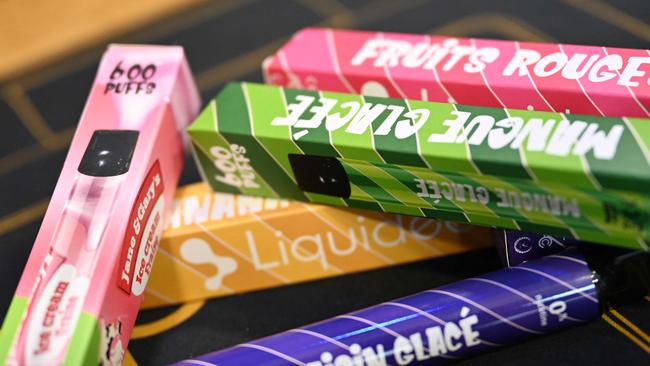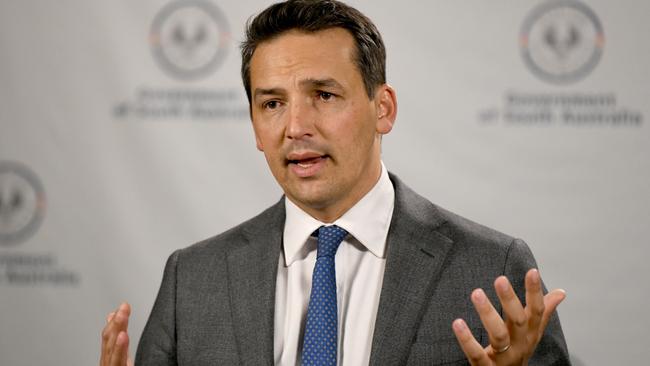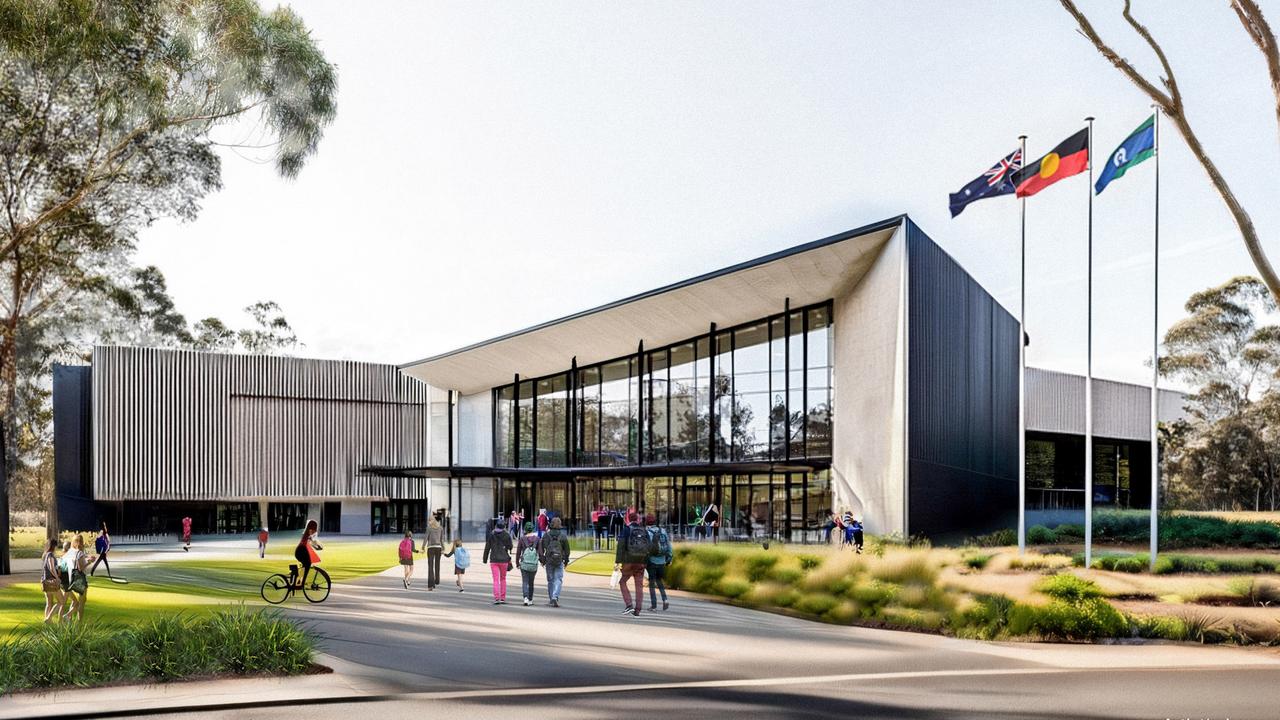National anti-vape campaign push to tackle increasing e-cigarette use among children
Vaping can be attacked with the same tactics as cigarettes, two SA ministers say, but they need help for their ambitious plan to work.
Schools Hub
Don't miss out on the headlines from Schools Hub. Followed categories will be added to My News.
Hard-hitting anti-smoking campaigns may hold the key to tackling a new health scourge infiltrating our teenagers’ social circles, the Education Minister says.
Blair Boyer says a nationwide approach is needed to tackle vaping, potentially including similar messaging to historical anti-smoking campaigns that helped turn around attitudes towards cigarettes.
Mr Boyer says he and Health Minister Chris Picton will approach their new federal government counterparts in the hope of collaborating with experts to reduce the harmful practice.
Their move also comes amid calls for more work to stamp out illegal e-cigarette sales to minors.
Mr Boyer said vaping was harder to detect among young people than traditional tobacco cigarettes because vapes could be made to look like other objects, such as pens, and their smell was less obvious.

So far this year, 354 suspensions have been handed out to children at government schools for vaping-related issues, such as using e-cigarettes on campus where it is banned.
That compares with 495 suspensions for all of 2021.
“Given the (vaping) stats globally and how they’re increasing … more needs to be done,” Mr Boyer said, suggesting Australia consider whether education campaigns similar to successful work to discourage smoking during the 1980s and 1990s and 2000s, may help.
That included TV advertisements depicting health effects and graphic warnings on packets.
“The real victory was teaching children that they didn’t want to smoke – it wasn’t because they were scared of getting in trouble – it was because they knew how bad it was for them,” Mr Boyer said.
Commissioner for Children and Young People Helen Connolly said children told her office they could still access vapes in local shops, despite laws banning the sale of e-cigarettes to minors in SA. She said society was “playing catch up” to understand the health effects.

“Most kids would tell you that smoking is not good for you. (But) I don’t think that there’s anywhere near that understanding of vaping at community level,” Ms Connolly said.
She is surveying young people to gauge how common vaping is and how schools might better respond.
Cancer Council tobacco lead Christine Morris said more emphasis was needed on stopping shops selling e-cigarettes to children.
“It’s not OK for adults to break the law and sell a product to children that’s going to harm them,” she said.
“A lot of them have enough nicotine in them for 5-6 cigarettes.”
Ms Morris said South Australian must ramp up its education around vaping and the harms associated with it – an area where it lagged behind the eastern states.
“They’re looking at a comprehensive package of education for parents and kids and increased focus on stamping out sales to minors,” she said.
Encounter Youth chief executive Nigel Knowles said his organisation – the largest provider of alcohol and drug education in secondary schools – was working on new programs for young people, their parents and teachers, about e-cigarettes.
SA Association of School Parent Communities president Jenice Zerna said education on vaping should start as early as possible, and authorities must crack down on those illegally selling vapes to children.





